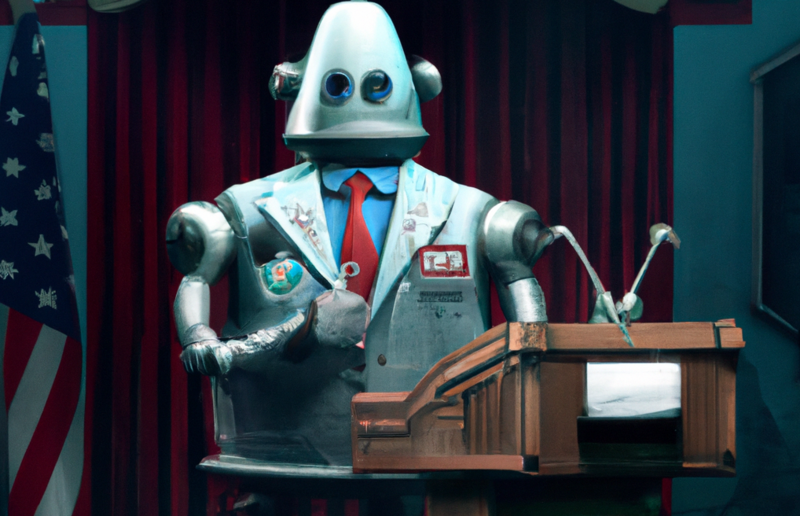Separating fact from fiction in an election campaign is difficult enough already. Now throw artificial intelligence into the mix, and it’s about to get a lot tougher.
Driving the news: US politicians and campaigns, always at the cutting edge of election skulduggery, are starting to use AI to create fake videos and other media in an attempt to sway voters.
- Last month the Republican National Committee released a video with AI-generated images depicting a dystopia they claim would be wrought by Joe Biden’s re-election.
- Donald Trump’s campaign published AI-generated audio mocking Ron DeSantis’ Twitter Spaces campaign launch, featuring the “voices” of Adolf Hitler and The Devil.
Why it matters: These early examples are pretty obviously fabricated, but experts fear that AI will be used by campaigns and political actors to create convincing (but fake) media.
- To some extent, this is already happening: A deepfake of Hillary Clinton endorsing DeSantis circulated online recently. Another showed an AI-generated Biden attacking transgender people.
- Political groups with big budgets could inflict more damage. For example, AI could be used to fake a candidate’s voice and produce a recording with incorrect voting times or offensive messages that could be distributed to millions right before election day.
Why it’s happening: It used to be expensive and technically difficult to make realistic fake video and audio. With a new generation of cheap and user-friendly AI tools, that’s no longer the case.
What’s next: The upcoming US presidential election will be ground-zero for groups using AI to influence the results. Expect whatever happens there to pop up in Canada shortly after.—TS
